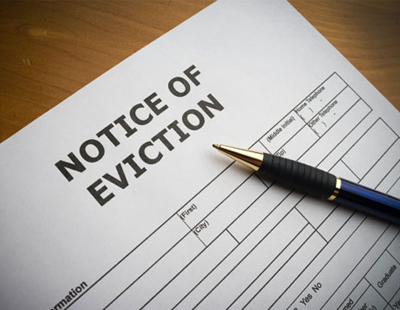
Specialist eviction service Landlord Action has outlined the quickest way to evict tenants under new regulations introduced by the Ministry of Justice - but warns that the scope for delay is considerable.
The company says the majority of residential possession claims are dealt with in the county court and enforced by county court bailiffs - but with a backlog of cases and a reduction of bailiffs, this has in recent times led to slower evictions.
In some cases, landlords apply for cases to be transferred to the High Court once a possession order has been made, so that High Court Enforcement Officers can carry out the eviction – generally a much quicker process. However this route, too, has seen a backlog build up in recent months.
Now the Ministry of Justice has changed the process for obtaining Writs of Possession, adding a further two steps to the application process and an additional £200 fee.
Some firms have built a business on advertising this so-called ‘7-day eviction” which, according to Landlord Action, was potentially misleading for landlords. “This was only ever possible from the point a case was transferred up to the High Court and not from when a landlord instructed an eviction firm” says Paul Shamplina, Landlord Action’s founder.
However, even this has now changed as the added administration and waiting for approval could add a further six to eight weeks in some eviction cases, claims Landlord Action.
The process now involves an N244 form to the issuing County Court for permission to transfer up to the High Court for enforcement, at which point a fee of £100 is payable.
Following that, a further application is made to the High Court or District Registry for permission to issue a Writ of Possession (N244 form), at which point there is a court fee of £100.
Once permission has been granted to issue the High Court Writ of Possession, yet another application is required using form PF92 (Order for Permission to Issue a writ of possession in the High Court).
All parties must now be notified of the application, which needs to be evidenced by a witness statement. This must confirm that each and every person in actual possession has been given notice, in writing, of the application, and that no application for relief has been made by any such person - this was not previously required.
The process is clearly potentially very long. “As a result, desperate landlords with severe cases could suffer further. We are in the process of ensuring that our system is as efficient as possible to keep time scales to a minimum despite the changes” says Shamplina.














%20-%20IMAGE%20Client%20Accounting%20%E2%80%93%20what%20are%20your%20options.jpg)





Join the conversation
Jump to latest comment and add your reply
Yet another nail in the coffin of private landlords.
Please login to comment